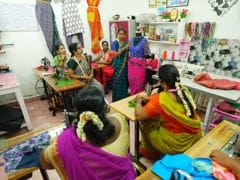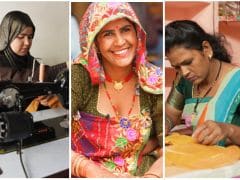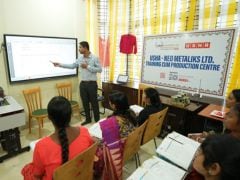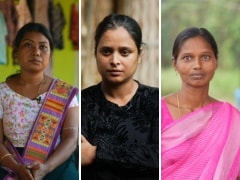- Home/
- Rekha Kishan's Story Of Empowerment Through Usha And CADAT
Rekha Kishan's Story Of Empowerment Through Usha And CADAT
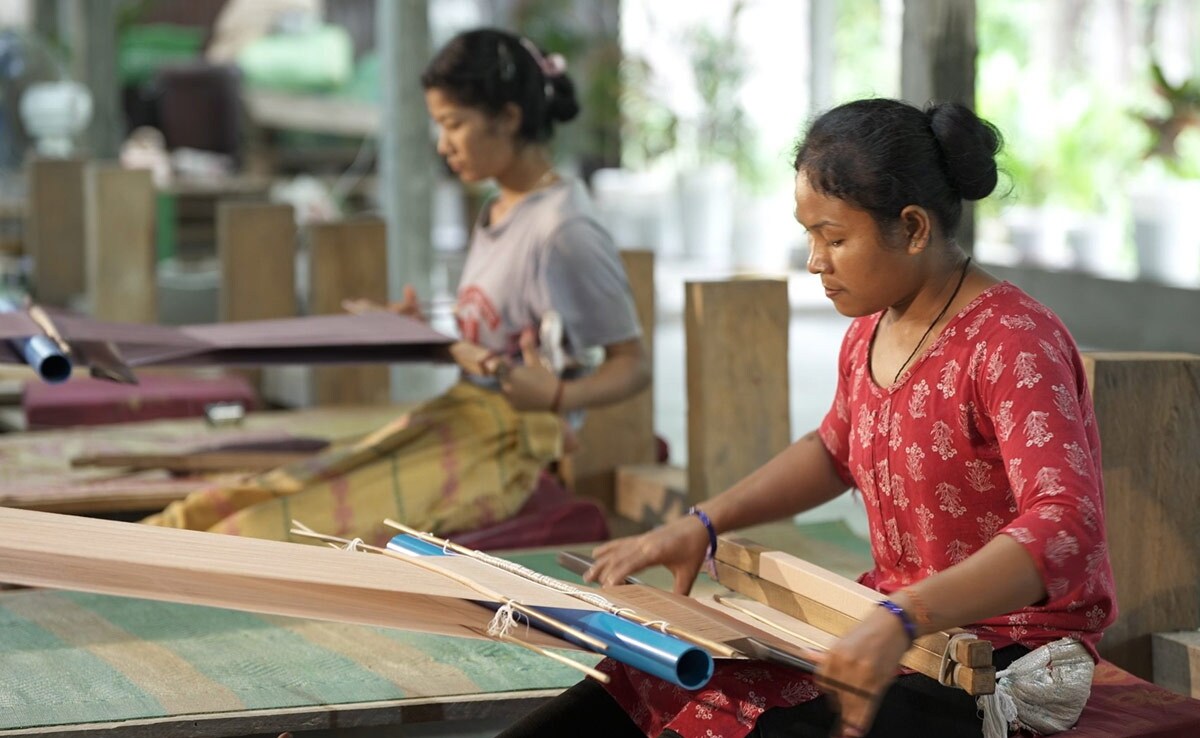
Usha Silai Schools are not just centers of learning; they are transformative spaces where women in rural India rebuild their lives and communities. Through the art of sewing, they weave their dreams, step into their power, and ignite change. Usha collaborates with a network of NGOs to amplify this mission, creating a powerful alliance that enhances the reach and effectiveness of the Silai Schools. These partnerships bring mentorship, resources, and community support, ensuring that women receive both technical training and holistic guidance to thrive.
For the NGOs partnered with Usha, the collaboration has attracted support from other corporate and government institutions, expanding their impact. Inspired by the programme's success, larger NGOs have independently mobilised funds and resources to further enhance the Silai School initiative. These partnerships have strengthened trust and empowered NGOs to secure support for various other community-driven projects, leading to lasting, positive change.
Also Read: Threading Hope: Sakuben Ahir's Journey From Challenges To Empowerment
In Assam's Biswanath district, home to majestic tea gardens and vast agricultural landscapes, the Centre for Development Action and Appropriate Technology (CADAT) has been a key partner in the Usha Silai School programme since 2016. The collaboration has allowed CADAT to reach marginalised communities such as tea garden workers and tribal groups, offering women new opportunities for empowerment.
Today, CADAT runs at least 40 Silai Schools across Assam. Hundreds of rural women have been trained, and the NGO itself has gained renewed credibility and support. Rekha Kishan, a 47-year-old from the Mijicajan tea garden community, is a shining example of this success. She runs a Silai School from the verandah of her home and now earns around Rs. 10,000 a month. Her success has not only transformed her life but also boosted CADAT's credibility as a grassroots organisation working for the betterment of rural women. Speaking about her experience with CADAT, Rekha Kishan, Usha Silai School Trainer said,
CADAT has helped me a lot. I attended a 7-day training by Usha International and received a sewing machine. I started teaching others at home, and now I earn a steady income. CADAT has supported me throughout, and I'm proud of my work. It's fulfilling to see others acknowledge it.
For CADAT, the partnership with Usha has opened doors to new projects and activities in Biswanath. By showcasing the success of the Silai School programme, CADAT has gained support from other institutions. Usha's Social Services team helps NGOs like CADAT by facilitating connections, proposal writing, and building capacities to expand their portfolios. Dhiren Deka, Chairman, CADAT said,
Rekha Kishan is a community worker. Running this school has brought her satisfaction and benefits. We're also thrilled that Usha's Silai School programme is making a real difference.
Also Read:From Village Struggles To Lakme Fashion Week Stardom: Sunita's Inspiring Journey
The collaboration with Usha has played a pivotal role in CADAT's growth, earning the trust of local communities and corporate partners. In the Khagrabari region, inhabited by Bodo tribal communities, CADAT has launched a livelihood project with funding from NABARD. This initiative builds on the success of the Silai School programme, further establishing CADAT as a reliable resource. Reflecting on the success, Manoranjan Hazarika, General Secretary, CADAT said,
We've been part of the Usha Silai School project since 2012, and our work has expanded to the state level. Our success with Usha attracted other agencies like NABARD, who funded a micro-enterprise program for 30 women. This success is a testament to Usha's support.
The Usha Silai School programme has become a catalyst for positive change, impacting civil society and driving new initiatives in rural communities. What began as a simple sewing project has evolved into a powerful force for empowerment and growth across India.
also read
Threads Of Courage: Usha Silai School's Kushalta Ke Kadam Weaves Dreams Into Reality
Team NDTVStitching New Beginnings: How Usha Silai Schools Transformed Three Women's Lives
Written by Team NDTVUSHA x NDTV: From Uttar Pradesh To Bihar, Corporate Partnerships Drive Financial Freedom For Rural Women
Team NDTV
Related Stories
More- Team NDTV | Wednesday January 07, 2026
From Madhya Pradesh's stigma to Bihar's child marriages, Usha Silai School's NDTV-backed Kushalta Ke Kadam empowers women like Kalpana and Shabnam to stitch dignity and self-reliance
- Written by Team NDTV | Friday January 02, 2026
Usha Silai Schools give second chances to women like Srinagar's Marifat, who rebuilt after widowhood; Madhya Pradesh's Jyoti, escaping abuse to run her own center; and Rajasthan's Vimla, rising from child marriage to tailor and teacher. Through nine-day training, they gain sewing skills, confidence, and income proving one stitch mends lives and inspires communities.
- Team NDTV | Friday December 26, 2025
A new wave of corporate-community partnerships is equipping rural women with skills, income and confidence
- Written by Team NDTV | Friday December 12, 2025
USHAs Silai School Programme empowers women across India by turning sewing into independence. Women become trainers and leaders, transforming their lives and communities through skills, confidence, and income
Adopt a Silai School
About the Initiative

Kushalta Ke Kadam, an initiative by USHA Silai School and NDTV has entered its eighth season. The aim is to empower more women across rural India by teaching them sewing skills and helping them open new doors of opportunities for themselves. The initiative encourages rural women to become financially independent and entrepreneurs by taking up sewing and training others in their respective communities.
Since 2011, the USHA Silai School initiative has trained more than 12 lakh rural women through over 33,000 Silai schools, spanning over 20,751 villages across India.
The women earn Rs. 4,000 – 5,000 per month on an average, with the highest recorded monthly earning being Rs. 84,000 in a month. This earning works as a catalyst towards building their self-confidence, reducing gender inequities, and raising their stature within their families and in society at large.
In Pics

Rebari girls grow up learning traditional embroidery, which along with their new found sewing skills developed at Usha Silai Schools, is helping them earn a living.

Usha Silai School has empowered many rural women to support their family and send their children to school.

The Usha Silai School, established in a small nondescript village that goes by the name of Kottai, is helping empower people from varied communities.

The all-inclusive Usha Silai School Programme covers the entire nation from hamlets tucked between hills to villages cast by the sea.

Vegetables farmers from the Mizoram hills earn very little given the topography of the area. Usha Silai Schools have played an important part in this region by skilling women to financially contribute towards their households.

Usha Silai School learner Lucy has trained seven other women in her community, helping them to become financially independent.

Women like Kaviben from the nomadic Rebari community are finally laying down their roots as they begin to gain financial independence and thereby stability through Usha Silai School.

Usha Silai School, located in the Gujarat's Bhuj village, is enabling rural women to earn as much as Rs. 2,500-4,000 each month.

Usha Silai School, in association with a Gujarat based NGO called Kala Raksha, is trying to bring about a Silai revolution in Bhuj.

Besides training other women from their community, many Usha Silai School learners have become entrepreneurs in their own right.

With sewing becoming easily accessible and lucrative, the silai schools are also helping revive traditional motifs and designs.

